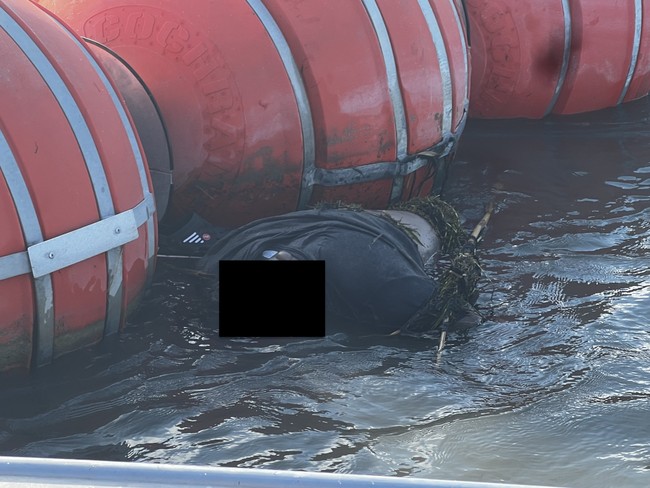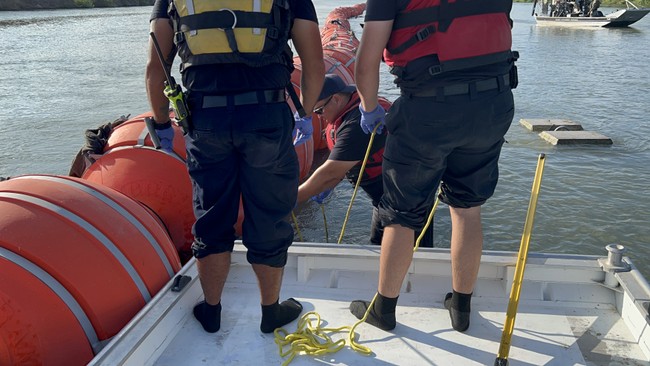EAGLE PASS, Texas — "Have you ever seen a dead body before?" Castillo, one of the firefighters, asked me as the boat we were on navigated the choppy waters of the Rio Grande.
"No, this will be my first one," I replied.
"You should've brought a mask, because of the smell. You won't forget it," Castillo assured me.
Shortly thereafter, our boat passed by a group of around 40 illegal immigrants who were wading through the water.
Recovering the bodies of illegal immigrants who drowned in the Rio Grande has become a common occurrence for the members of the Eagle Pass Fire Department as thousands of people, on a weekly basis, take the gamble of going into the river with a goal of reaching the United States. Before Friday, authorities had already pulled multiple bodies, including a child, from the water.
Recommended
The very first call the fire department got relating to the migrants on Friday morning was to recover a body that had been spotted by a Texas Highway Patrol boat unit. The body had been caught by the water buoys installed by the state of Texas to deter crossings. The three firefighters I was with worked to pull the body away from the barriers while making sure it didn't float away with the current. The victim was an adult male. Based on the body's decomposition and the smell, he had been in the water for around five days. The initial assessment was he had drowned up river before the current brought him towards the buoys.
After securing the body, our boat went further south to avoid having members of the public who were by the international bridge see what we were bringing back. Once back on land, deputies of the Maverick County Sheriff's Office took possession of the body and waited for the coroner's office to take it away.

Julio Rosas/Townhall
Julio Rosas/Townhall
"How many bodies have you seen during all this?" I asked the firefighters after they loaded up the boat.
"More than you want," Captain Barrientos replied.
"You see how long it took us to get one body?" he then asked me. I finally noticed the time. It was almost noon and the department had gotten the call just before 9:00. Barrientos said for his company, the most bodies they recovered in one day was six, but a company at another station had a record of nine.
To further highlight how busy the area has become for illegal crossings, while I was with the recovery team, the department had to respond to a dehydration case out in the countryside.




